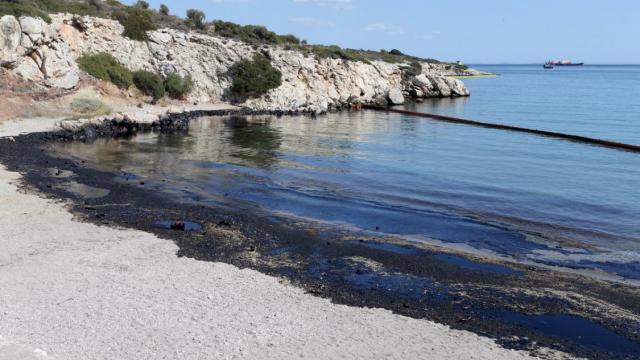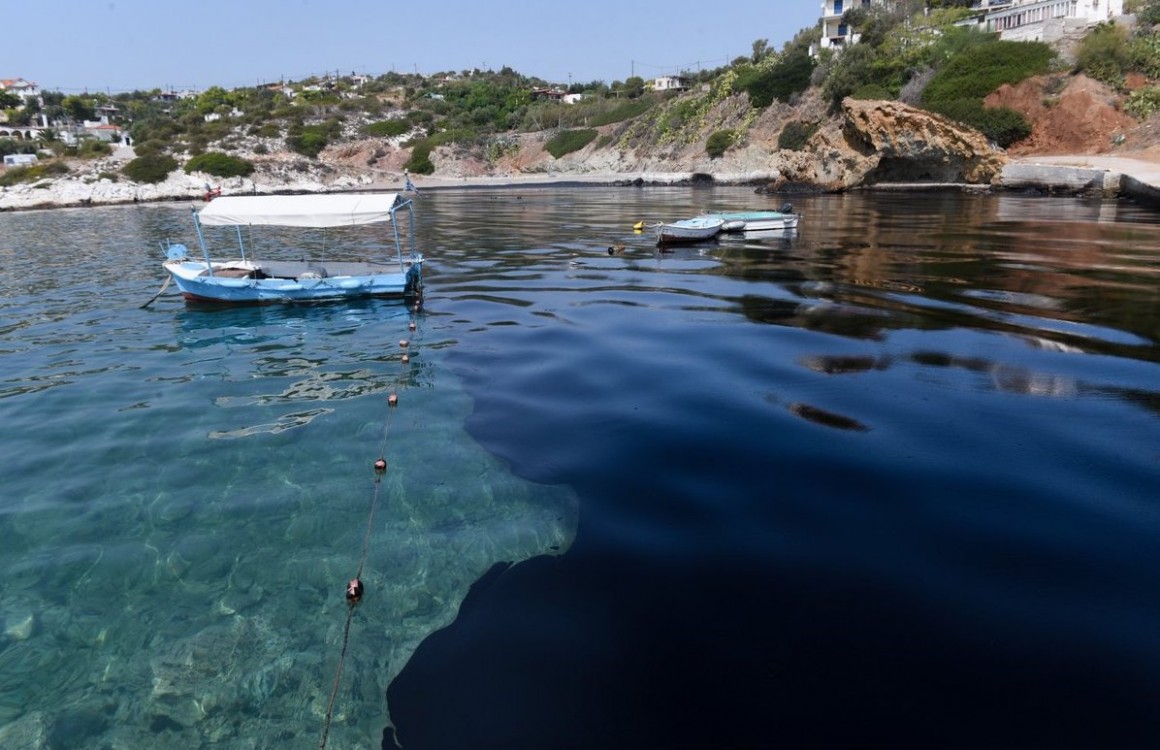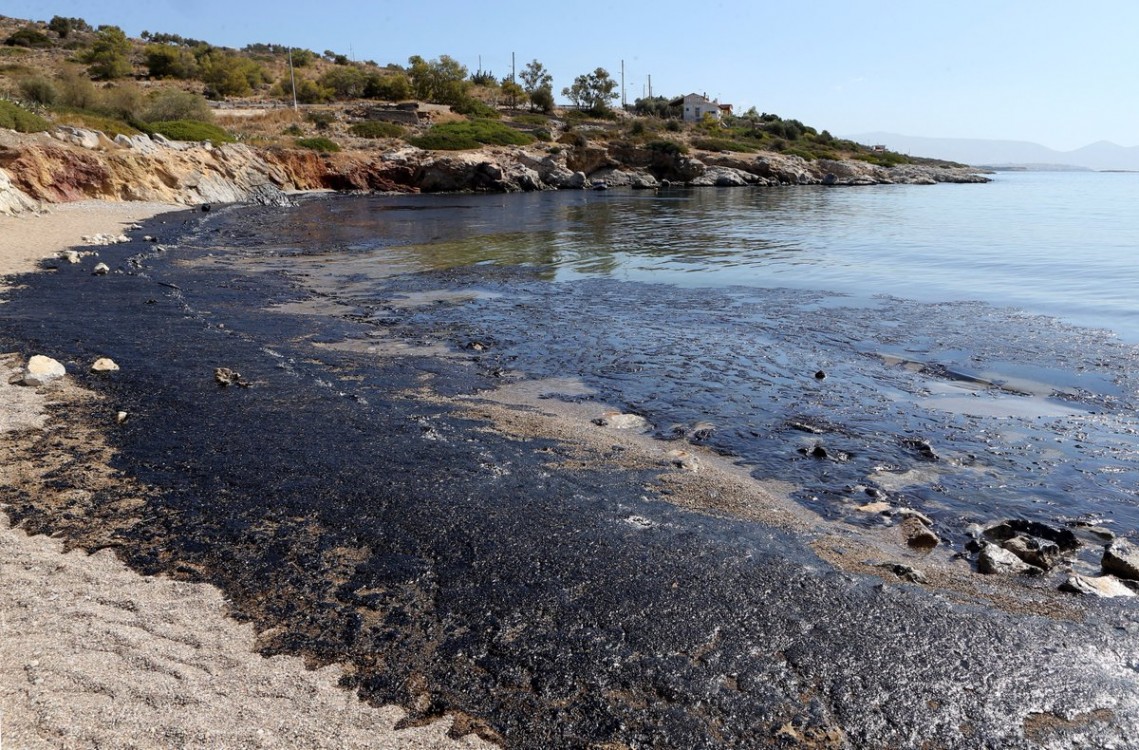
ATHENS, Greece – On Sept. 10, the 45-year-old Greek tanker Agia Zoni II sank in the gulf of Saronikos, releasing 2,500 tons of crude oil and marine gas into the sea around Athens. According to investigators, the tanker's hull was compromised and the vessel sank within 15 minutes. Of the 11-person crew aboard the ship, only the captain and chief engineer were on deck at the time.
The ship's owner, Theodoros Kountouris, later broke down during a televised interview when he was informed about the extent of the oil spill disaster. Kountouris said the ship had been overhauled in 2014, and every possible measure was taken to stop the leak as soon as the vessel sank.
The truth is, the vessel had failed to meet the standards of the Norwegian DNV-GL register as early as 2008. Furthermore, according to representatives of the maritime workers' union PEMEN, the ship was deemed “extremely dangerous to safe navigation.”
Even so, the vessel had been granted a two-month extension, in accordance with Greek law, while the Ministry of Shipping and Island Policy arranged for its future inspection. But according to statements by ministry inspectors, the tanker had had no government issued certificates to speak of.
Political Blowback
The immediate political fallout only served to highlight the Syriza administration's lack of preparedness in face of such crises. While accusations flew left and right on traditional media and online, Greece's infamous lack of readiness with regard to environmental disasters came to light once again. In the usual fashion, any statements made so far have been inconclusive.
"We believe that there will be no irreversible consequences to the environment," quipped the Deputy Environment Minister Socratis Famellos. "I would not call it an environmental disaster. There was a serious environmental accident that is being dealt with."
However, within 24 hours after the leak began, sea currents had already spread the spill across the Athenian coastline and moved the bulk of the crude oil across the Saronikos toward the island of Salamis. Local businesses were forced to close and tourist establishments shut down while cleanup efforts were underway. Local municipal services, aided by government, raced against the clock to tackle the brunt of the disaster.
Giorgos Papanikolaou, the mayor of Glyfada, one of the suburbs most heavily affected by the spill, asserted bluntly: "If someone had warned us even on Tuesday, we would have taken precautions."
Following the spill, beaches were cordoned off and privately contracted anti-pollution vessels were deployed to try and contain the spread. Despite a request for assistance by the Greek government to the E.U. Commission's Emergency Response Coordination Centre, seeking more anti-pollution vessels, no such assistance has been provided. In fact, even the single vessel promised by the E.U. seems to have been delayed on account of the infamous red tape enveloping Brussels.
Despite the considerable efforts to stem the impacts, a number of environmental NGOs – notably Greenpeace and the Greek branches of WWF – have pointed out the huge toll the spill has already taken on local wildlife. According to early assessments, this scale of oil spill should never have reached the crisis levels that it did, provided that any sort of response had been put in place to begin with.
In a recent statement, Takis Grigoriou, spokesman for Greenpeace Greece, said, “If a relatively small leak can cause such destruction right beside the country’s biggest port and the operations center of the Shipping Ministry, what exactly is the country’s capability in dealing with leaks and accidents from large-scale oil operations in the Ionian and Cretan seas."
"The question," he said, "is not whether another accident will happen, but when.”
An outraged Dimitris Karavelas, spokesman for the Greek division of WWF, slammed Greek officials, saying, "Clearly, this crash test of readiness was a failed one. We have no idea what is happening on the seabed."
Greek officials have been largely unwilling to respond to the criticism or take direct blame, perhaps hoping instead that this latest environmental crisis will be brushed under the rug, as so many others often have. In a recent statement, Environment Minister Panagiots Kouroumplis said, "One doesn't see mass destruction among birds and fish. In 25-30 days the [situation] will have changed completely... a giant effort is under way."
According to government estimates, 20 additional anti-pollution vessels are expected to join the effort to curb any further damage the spill is causing to the immediate area. Kouroumplis added confidently: "The entire affair will be forgotten in a few days."
In the meantime, radio and television stations continue to relay regular updates, urging citizens to keep an eye out for possible seepage from the Saronikos gulf, and advising them how to handle any dead animals that might be washed ashore.
3 WAYS TO SHOW YOUR SUPPORT
- Log in to post comments













